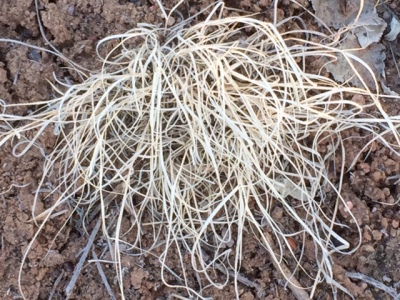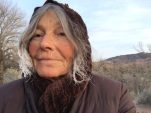
Shame
is the shadow
of being unloved,
unwanted,
rejected,
strung out on need.
Shame paralyzes;
slamming into reverse
actions that would
create new intentions
including hope
of love.
Shame blots out
Personhood,
snapping the thread
of interdependency.
Plant Consciousness
restores it to life.
Postscript:
This morning while walking through the Bosque marveling over the sight of bare trees against a pale pink sky, I heard the brrring of crane presence.
Offering up the dream that had so distressed me, I received an instantaneous response from the ground beneath my feet.
“Look at us! We are all dependent upon each other,” the grasses murmured.

More cranes flew by.
The shadow of undeserved shame vanished – it’s illusion shattered.
I walked on…
Richard Powers, the author of The Overstory believes that humans need to cultivate a “plant consciousness”, that is, an awareness that cultivates the reality that all species including humans are interdependent. Trees, for example provide us with the oxygen we need to breathe, offer their offspring and other trees minerals and water so that they thrive; Deciduous trees send evergreens extra carbon during summer reversing the process in the fall. Trees and plants have thrived for 400 million years because they are connected by underground networks that support one another in times of need.
Humans seek commodities instead of cultivating genuine relationships; this universal greed and indifference has brought us to the edge of human extinction, and still we do not see.
 Sara is a naturalist, ethologist ( a person who studies animals in their natural habitats) (former) Jungian Pattern Analyst, and a writer. She publishes her work regularly in a number of different venues and is presently living in Maine.
Sara is a naturalist, ethologist ( a person who studies animals in their natural habitats) (former) Jungian Pattern Analyst, and a writer. She publishes her work regularly in a number of different venues and is presently living in Maine.


A lovely poem! It is so true about the need for us to understand our interdependence. In the past, we needed other people in our communities to survive – to gather food, to build shelters, to heal each other. Now we think we no longer need one another, but we still need each other to survive and just don’t see it, hence the catastrophic ecological and social situations we are in! I especially love the photo and words about “grandmother hair” grasses!
LikeLiked by 2 people
I think it is truly bizarre that we think that we no longer need one another or a relationship with the earth unless I consider that people are totally cut off from their bodies – body tells us how we feel.
LikeLike
Thanks for this post, a good one to read first thing in the morning. I have long believed that everything is alive and has some level of consciousness–starting with rocks and mountains and oceans and lakes, all things mineral. I guess it’s sort of like the 18th-century Great Chain of Being, except I don’t put the standard-brand god and his angels and men at the top. My idea is a simpler chain of being. Rocks and water are closest to the earth and “speak” with deeply grounded consciousness. Next: trees and forests and grasses and flowers and edible grains. Things rooted in the planet are conscious, too, though I don’t think they talk much that we can understand. Some people do understand them. Next are animals and birds and fishes, which are mobile and often vocal. Then people. At the “top” is the Mother Goddess in all Her forms and manifestations. Every being in this chain of life communicates in some (sometimes invisible) way with every other being. Which is why we human needs to take care of the planet.
Five years or so ago, I placed something–someone–at the very bottom of the chain of being. The Orange T. Rex that occupied the White House. Now: all his sexist, racist, fundamentalist followers, too. Down at the very bottom of life. That’s where shame lives. Alas, it sometimes rises up.
LikeLiked by 3 people
Barbara, I think of all these levels as being complementary – each has something to teach us… I also think of them as aspects of the goddess in her many forms.
LikeLiked by 1 person
Beautiful! The plants are such teachers and restorers. May we pay attention. May we root, rise, and connect with them–and all life. I also loved The Overstory. Thanks for letting people know about it.
LikeLiked by 3 people
Oh what a book Elizabeth. Writing it changed Powers’ life and reading it can change others – don’t you think?
LikeLiked by 2 people
I totally agree. I hope everyone will read The Overstory. FAR readers, if you haven’t yet, do! Powerful, informative, imaginative and poetic. You will see trees not just with new eyes but with all your senses!
LikeLiked by 1 person
I’m yet another fan of the Overstory — and of this post. An awareness of reality’s subjective aspect, as well as the interdependence of all beings, is so important. As is the consciousness of shame and the harm it can do.
LikeLiked by 1 person
yes, the subjective is too often pushed to the background…
LikeLiked by 1 person
Thanks for this post Sara. I just added “The Overstory” to my growing list of books to read. The absolute truth of the interconnectedness and interdependence of all beings seems to be beyond the understanding of many at this time. Human beings are just so wounded and filled with fear that we have become blind to our place in the cosmos. But so many are writing and singing and dancing and painting about our connections that maybe the message will reach more and more – Let’s hope.
LikeLike